Home Remedies for Acne: Popular and Effective Remedies for Acne
Acne is a common skin condition that affects people of all ages. It occurs when hair follicles become clogged with oil and dead skin cells, leading to whiteheads, blackheads, pimples, and cysts. Acne can cause pain, scarring, and emotional distress. While over-the-counter and prescription medications are available, many people look to home remedies as natural alternatives for clearing up acne. Here are some of the most popular and effective home remedies for acne.
Tea Tree Oil
Tea tree oil is an essential oil derived from the leaves of the Melaleuca alternifolia plant, also known as the tea tree. It contains powerful antibacterial and anti-inflammatory compounds that can help treat acne. Numerous studies have found tea tree oil to be effective against the bacteria that cause acne, especially Propionibacterium acnes. To use tea tree oil for acne, dilute it with water or a carrier oil like jojoba oil, then apply it to affected areas with a cotton swab 1-2 times per day. Concentrations of 5-10% are ideal. Tea tree oil can cause skin irritation in some people, so test it on a small area first.
Aloe Vera Gel
The aloe vera plant has been used for centuries to treat skin conditions. The clear gel found inside the leaves contains active compounds like polysaccharides that have antioxidant, anti-inflammatory, and antimicrobial effects. Applying aloe vera gel to acne may help reduce redness and inflammation. It may also prevent bacterial infection and promote healing. To use, cut open an aloe vera leaf and extract the gel. Apply a thin layer on clean skin 1-2 times per day. Make sure to use pure gel as close to natural as possible. Processed versions may not have the same benefits.
Apple Cider Vinegar
Vinegar has antimicrobial effects that may help prevent acne-causing bacteria from growing on the skin. Apple cider vinegar, in particular, contains organic acids like acetic acid that have been shown to kill P. acnes bacteria. It may also balance the skin's pH levels. To use apple cider vinegar, dilute it with water (1 part vinegar to 3 parts water is common). Dip a cotton ball in the solution and apply it directly on pimples. It can also be used as a gentle toner for the entire face. Take care to avoid the eyes and rinse it off fully after 5-10 minutes.
Green Tea
Green tea is high in antioxidants called polyphenols that may reduce inflammation and fight bacteria. Early research shows applying creams with green tea extract may help improve acne. To use green tea for acne at home, steep green tea leaves in hot water for 3-5 minutes. Let the tea cool, then apply it to your face with a cotton ball or spray it on using a spray bottle. You can apply 2-3 times per day. Be careful not to rinse with hot water which can irritate the skin.
Baking Soda
Baking soda or sodium bicarbonate is a gentle exfoliant that may help remove dead skin cells and excess oil from clogged pores. It also has mild antiseptic properties to kill off bacteria. Make a paste by mixing 1-2 teaspoons of baking soda with a bit of water. Gently massage the paste onto acne-prone areas using circular motions. Rinse with lukewarm water after 1-2 minutes. Be careful not to scrub too hard which can further irritate skin. Use no more than 1-2 times per week.
Honey
Honey has natural antibacterial effects and may help calm inflammatory acne lesions when applied directly. Always use raw, medical-grade manuka honey for acne treatment. Apply a small dab directly on the pimples or mix 1 tablespoon of honey with an equal amount of cinnamon powder. Leave the mixture on for 10-30 minutes, then rinse off with warm water. The sticky texture allows it to cling to the skin and penetrate pores. Repeat 1-2 times per week as needed.
Oatmeal
Colloidal oatmeal has soothing anti-inflammatory properties that make it effective for sensitive skin prone to acne. It helps remove excess oil without over-drying. Make an oatmeal mask by cooking 1/2 cup oats in water until soft, then blending to a paste. Let cool before applying on clean skin for 10-20 minutes. Rinse with lukewarm water. Ground oats can also be added to face scrubs or baths. Be careful not to scrub too vigorously, which can worsen acne.
Garlic
Garlic is an antimicrobial ingredient that may be effective in reducing bacterial overgrowth implicated in acne. Crush 2-3 cloves of fresh garlic and wait 10 minutes for the allicin to activate. Mix the crushed garlic with a few teaspoons of water to form a paste. Apply to affected areas and leave on for 10-15 minutes before rinsing off. Repeat 1-2 times weekly, but be aware garlic can cause skin irritation in some individuals.
Coconut Oil
Coconut oil contains lauric acid and other fatty acids that exhibit antimicrobial and anti-inflammatory activity against acne-causing bacteria. Use extra virgin coconut oil only. Massage a few drops between your palms to warm before patting it gently onto clean skin. Leave it on overnight or for at least a few hours before washing off. Coconut oil is highly comedogenic for some people, meaning it can clog pores. Start slowly and discontinue use if it makes acne worse.
Turmeric
Curcumin, the active ingredient in turmeric, displays potent antioxidant, anti-inflammatory, and antimicrobial effects that may help improve inflammatory acne lesions. Make a mask by mixing 1 teaspoon of turmeric powder with honey, yogurt, or water. Apply to the skin for 10-20 minutes then wash off with warm water. Turmeric can temporarily stain the skin yellow, so use caution when applying it to the face.
Lemon Juice
The citric acid in lemon juice may help exfoliate dead skin cells and reduce excess oil production. It also has antibacterial effects against P. acnes. Use fresh lemon juice and avoid commercial varieties which may be diluted. Apply lemon juice to acne-prone areas using a cotton swab or by dipping a Q-tip in lemon juice and dabbing it onto pimples. Leave it on for 10 minutes or overnight, then rinse with warm water. Lemon juice may dry and irritate skin, so use it sparingly.
Cucumber Slices
Cucumber has soothing, cooling, and mild astringent effects that can help reduce acne swelling and redness. It contains antioxidants like cucurbitacins that may combat inflammation. Cut thick slices of cucumber and refrigerate for 30 minutes before applying to the affected skin for 10-20 minutes. You can also grate or puree cucumber to make a cooling mask. The vitamin C and amino acids in cucumber nourish the skin.
Egg Whites
Egg whites provide a quick-drying mask that can help eliminate excess oil and tighten pores. Separate 3 egg whites from the yolks, whisk lightly, then apply to clean skin. Allow to dry completely before rinsing off with lukewarm water. The proteins in egg white draw out impurities without over-drying the skin. Use caution if you have sensitive skin, as this can cause irritation in some cases.
Papaya
Papaya contains the enzyme papain and vitamin A which help prevent dead cell buildup and clear away excess oil. Mash ripe papaya flesh to make a smooth paste. Apply to affected areas for 10-15 minutes before rinsing with lukewarm water. Papaya may also reduce inflammation and acne scarring over time with regular application. Avoid using papaya if you have cuts or broken skin, as the enzymes may cause irritation.
Yogurt
Yogurt contains probiotics that may inhibit the growth of P. acnes bacteria and reduce inflammation. Opt for plain, unsweetened yogurt with active cultures. Apply a thick layer on clean skin and allow to sit for 20-30 minutes. Yogurt masks can be drying, so rinse with warm water and moisturize after using. Some people experience more breakouts from dairy products, so monitor your skin's response.
Fuller's Earth Clay
Fuller's earth is a type of clay that can absorb excess oil from the skin and draw out impurities from clogged pores. It may also have mild antiseptic effects against acne-causing bacteria. Make a paste using 1 tablespoon of Fuller's earth powder and water. Apply to acne-prone areas, allowing it to dry for 5-10 minutes before rinsing off. Clay masks work best on oily skin types and may be drying for dry skin. Use 1-2 times per week.
Spot Treat with Salicylic Acid
Over-the-counter acne spot treatments containing salicylic acid can help dissolve oil, remove dead cells, and kill bacteria inside pores. Look for products containing 0.5-2% salicylic acid. Dip a Q-tip in the solution and apply directly on pimples and blackheads. Allow to dry before rinsing. Use sparingly to avoid excessive peeling or irritation of healthy skin. Do not use if you have an aspirin sensitivity.
Rose Water Spray
Rose water has gentle astringent, soothing, and antimicrobial properties that make it ideal for acne-prone skin. It can help remove excess oil and bacteria while reducing redness and inflammation. Pour pure rose water into a spray bottle or dip a cotton ball in rose water and dab onto affected areas after cleansing. It offers a great way to hydrate skin without clogging pores. Do not rinse it off.
Ice Cubes
Rubbing ice over areas of acne swelling helps constrict blood vessels and reduce inflammation. Wrap ice in cloth then hold it on problem areas for 1-2 minutes at a time. Ice also offers a cooling effect that can temporarily soothe painful pimples and cysts. Use as needed throughout the day to diminish redness and discomfort. Do not apply ice directly to bare skin, as this can damage skin tissue.
Evening Primrose Oil
Evening primrose oil is thought to reduce inflammation and balance hormones, which may help improve acne, especially in women. It contains gamma linoleic acid (GLA) which helps regenerate skin cells. Take 1,000-2,000 mg orally per day. Alternatively, pierce a capsule and apply it as a spot treatment overnight. Do not use evening primrose oil 2 weeks before or after surgery, as it may increase bleeding risk.
Zinc Supplements
Oral zinc supplements may reduce inflammation and help fight acne-causing bacteria. Zinc appears to be most effective for reducing inflammatory lesions like papules and pustules. Take 30-45 mg per day for optimal acne-fighting effects. Excessive doses over 150 mg daily can cause side effects like nausea and may also worsen acne for some people. Discontinue use if breakouts get worse.
When using home remedies for acne, be patient as results may take several weeks or months to develop. Try one remedy at a time and monitor your skin's response. Combining multiple products can dry out and irritate the skin, making acne worse. Avoid harsh scrubs or exfoliants as these can worsen existing acne and cause scarring. See a dermatologist if acne does not improve with home treatments. Professional medical care may be required for moderate to severe acne cases. Maintaining a consistent skincare routine along with a healthy diet and lifestyle habits can help prevent future breakouts.
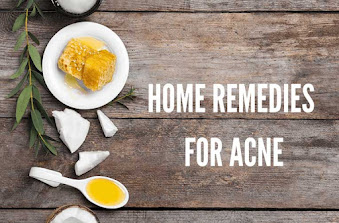
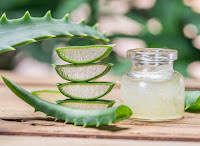

.jpeg)

.jpeg)
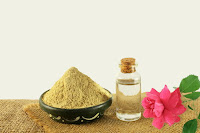

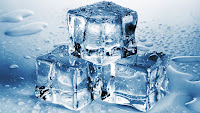
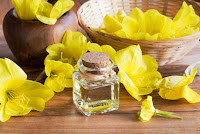
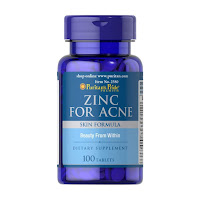
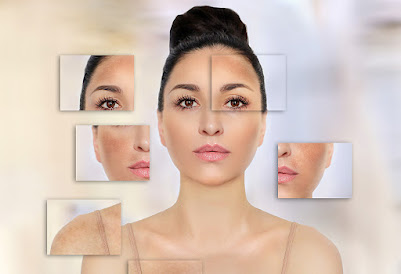

.jpg)

No comments:
Post a Comment